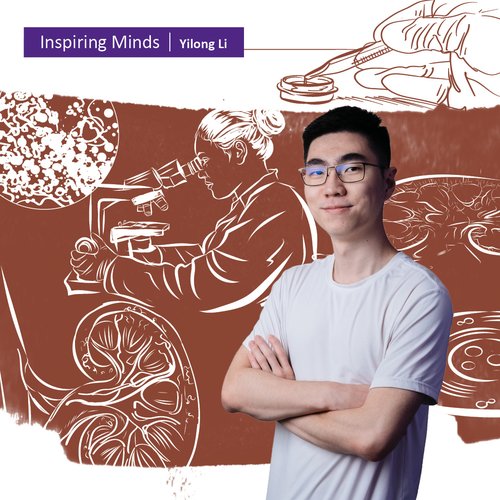Inspiring Minds seeks to broaden awareness and impact of graduate student research, while enhancing transferable skills. Students were challenged to describe their research, scholarship or creative activity in 150 or fewer words to share with our community.

How do the kidneys repair themselves?
Inspiring Minds seeks to broaden awareness and impact of graduate student research, while enhancing transferable skills. Students were challenged to describe their research, scholarship or creative activity in 150 or fewer words to share with our community.
Kidneys are among the most complex organs in the human body. Each kidney is made up of a million tube-like filters called nephrons that filter over 150 liters of blood per day! The complex architecture of the kidney enables most of the filtered water and substances to be recycled while excreting those in excess as urine. However, the kidneys are injured commonly, and this can be extremely messy. Imagine having millions of USB cables tangled up in your wallet, and you have to find the one that is broken. Luckily, kidney cells have a remarkable capacity to repair themselves by quickly removing any damaged cells. To study this important function, we simulated the injury state and identified signalling switches that can potentially regulate this process in kidney cells. Our knowledge will help you better understand the self-repairing function of the kidneys and potentially lead to novel therapeutics for kidney injuries.
Yilong Li
MSc candidate, Microbiology and Immunology
Schulich School of Medicine and Dentistry - Western University
Supervisor
Lakshman Gunaratnam
Yilong is a MSc candidate in the Department of Microbiology and Immunology at the Schulich School of Medicine and Dentistry at Western University. His research area is acute kidney injury where he studies the signalling mechanisms that allow kidney cells to clear up debris and reduce inflammation during injury. He hopes that his research can provide insight for developing novel therapeutics to ameliorate acute kidney injury in patients. Yilong is supported by the NSERC Canada Graduate Scholarship for Master’s students.
View Yilong's work as it appears in the Inspiring Minds Digital Collection: https://ir.lib.uwo.ca/inspiringminds/242/.
